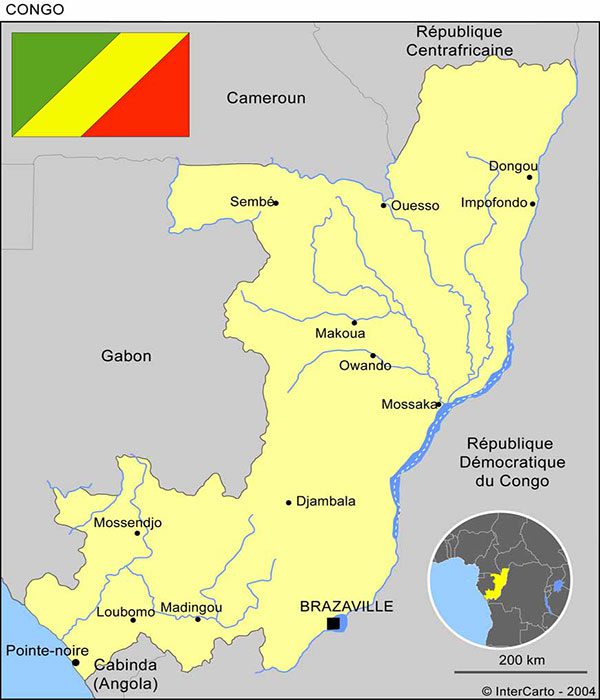Opposition candidates in Congo have filed an appeal against the re-election of incumbent president Deni Sassou Nguesso for a fourth term.
Although returned to power with 88.57 percent of the vote, President Sassou Nguesso is not applauded by almost everyone in Congo.
His political detractors denounced what they called a “calamitous” election with the rapid publication of provisional results on Tuesday.
“It’s not possible to compile the results from all over Congo in just one day. There is something surprising: in most of the results, we follow the order of presentation of the candidates on the ballot. So, it is something preconceived,” Mathias Dzon observed.
Dzon came third with 1.90 percent of the vote, behind the late Guy-Brice Parfait Kolélas who died of Covid-19 on polling day on Sunday.
He came second with 7.84 percent of the vote.
His ally Jean-Jacques Yhombi-Opango also denounced the “indecent haste” in publishing the results.
“I would like to see with what material they could compile the results. I do want us to evolve but we are told here that there is no biometrics, that there is no such technology. Can we do it so quickly? I am quite surprised. It is not normal. All the compilations have not yet arrived in Brazzaville. It’s really dirty,” he told RFI.
However, Sassou Nguesso’s campaign spokesman, Anatole Collinet Makosso, took an opposing view.
Logistics
“The state has its channels for transmitting information. This should not be compared to the individual who does not even know how he can get the results here. If they were better organised, they could have them. The state should not make its functioning dependent on the dexterity, diligence or non-diligence of individuals. This is not possible,” Makosso explained.
In addition to the complaint of “indecent haste”, the opposition intend to strengthen their appeal by invoking Article 70 of the Congolese constitution.
According to them, it provides for the postponement or cancellation of the presidential election in the event of a candidate’s death.
However, the power relies on “the provisions of Article 36” of the fundamental law.
At this level, Anatole Collinet Makosso noted that “there is no problem.”
Last Monday, the president of the Electoral Commission, Henri Bouka, had considered that the election was valid, since the candidate Kolélas died after the vote was held.
A few hours before his death and the start of the vote, Kolélas, 61, had released a video in which he said he was “fighting for his life.”
“However, I ask you to stand up. Go and vote,” he said, despite being bedridden, weakened, and with a breathing mask on his hand.
He died on Sunday night in the plane that was taking him to France for treatment.
In power for 36 years, Denis Sassou Nguesso, 77, nicknamed “emperor” by his Ivorian and Guinean peers, had faced six challengers in the March 21st presidential election.
ODL/id/lb/as/APA


